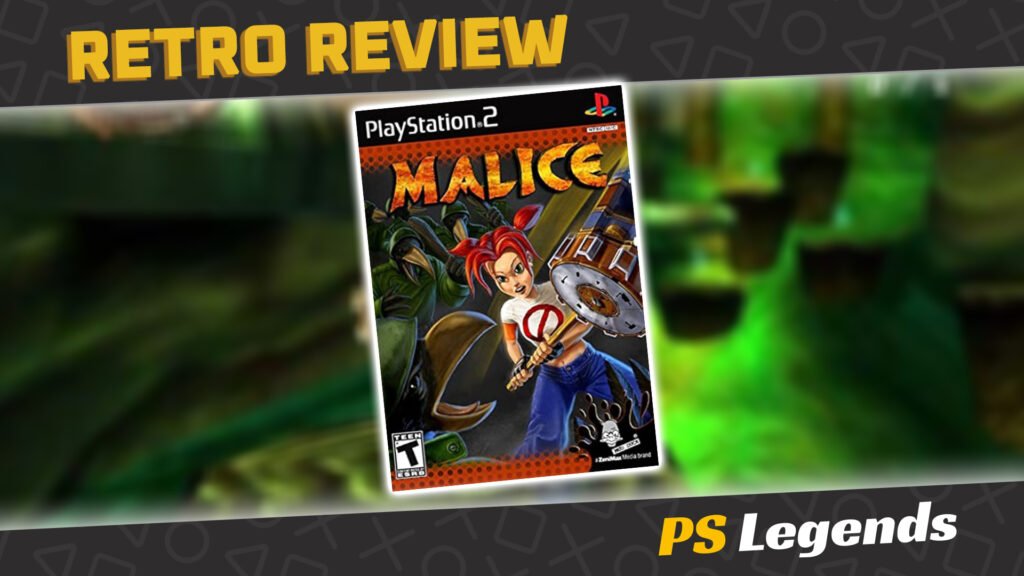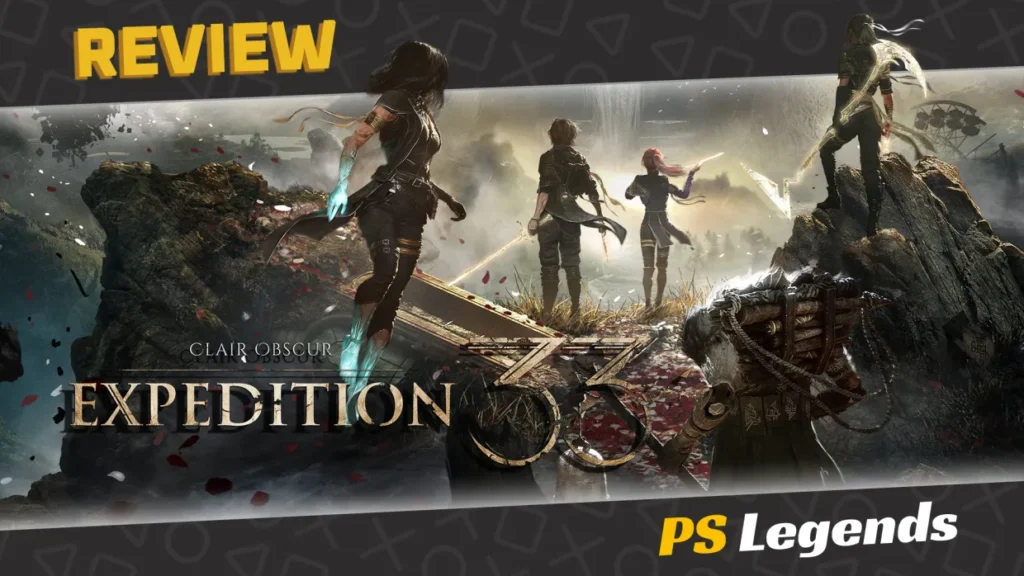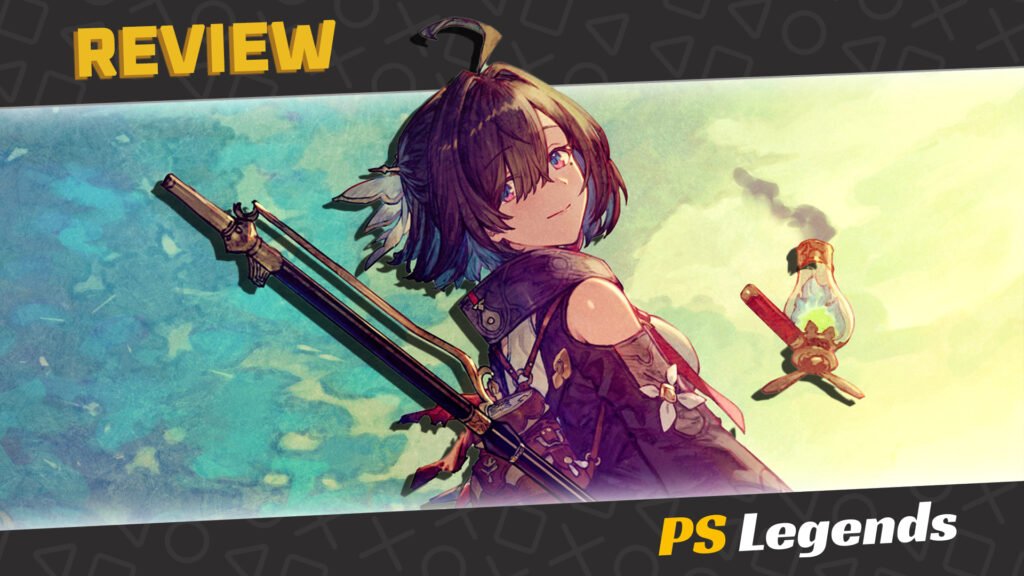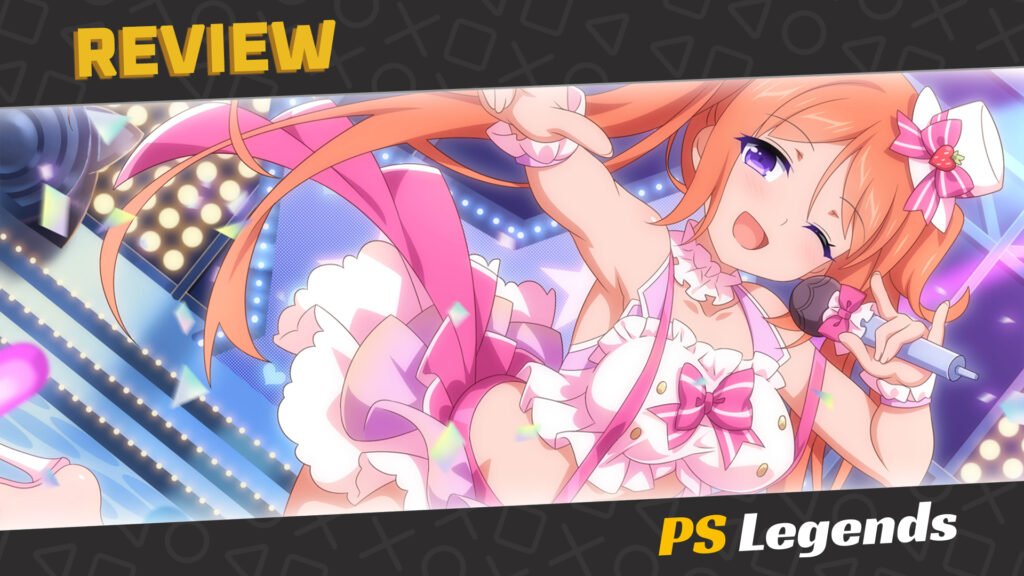I like to take the time to find the hidden meanings in games where applicable. Some are obvious, others less so. Some are political, while others are personal, giving us an insight into the mindsets of their respective developers. I see Malice as a cry for help; a last-ditch effort to salvage something, anything, from a dead yet costly game which had heaps of potential.
By pulling Malice out of cancellation, reworking what they had and releasing the game as a budget title, struggling UK-based developer Argonaut Games could show off at least some elements which they could do well. In part, it seems to have worked somewhat. While the once-mighty Argonaut of Starfox, Croc and Harry Potter fame couldn’t quite withstand the test of time, many of their hardworking staff would be recruited by AAA developer Rocksteady. Nicely done, guys. Nicely done.
On This Page
Introduction
Malice is a platform game developed by Argonaut Games and published by Mud Duck Productions in North America, and Evolved Games in Europe, released in 2004 for the PlayStation 2. The game saw a lengthy and staggered development process. Some traces of graphical elements remain from the game’s original PSone roots, while other enhancements have been made in anticipation of a release on later, higher-definition consoles.
The game’s development cycle proved to be quite troublesome, with a change in publishers, cancellation and eventual revival, the game’s planned 2002 release would eventually be delayed to a summer 2004 release. There would be many costly reasons for this lengthy delay, and its even longer development. It’s a game with quite the backstory.
In May 2002, it was announced that band members from iconic US rock band No Doubt would be doing various voice-overs for the game and also providing the soundtrack, with singer Gwen Stefani providing the voice for protagonist Malice. The game was later shown off at Vivendi Universal’s booth at E3 2002 with a music video trailer performed by No Doubt including their song ‘Platinum Blonde Life’. By June, the game was announced to be released in November.
In October 2002, Sierra and Argonaut agreed to delay the game to the Summer of 2003. However, Argonaut’s financial issues proved to be problematic, and in May 2003, it was announced that Vivendi Universal had cancelled their developer contract with Argonaut for the game and they would look into another publisher for the title, but in the end, gave back all rights to Argonaut, leaving them with no choice but to cancel the game along with their timed contract with No Doubt.
In January 2004, it was announced that the game was revived after ZeniMax Media subsidiary Mud Duck Productions purchased the publishing rights for the game in North America, with Evolved Games acquiring the European publishing rights a few weeks later. The game was quietly released in June 2004 in the United States, and would be among Argonaut’s final few releases, as the company went out of business two months after the European release, citing mismanagement issues.
The game would also see a couple of name changes during its staggered development, names which are still incorrectly assigned to the game even today. Originally known as ‘Malice In Wonderland’ before changing to ‘Malice: Kat’s Tale’, which was supposedly named after a second playable feline character who was later cut from the game entirely. The final version of the game would simply be released as ‘Malice’, along with some oddly unflattering artwork slapped on the North American version.

Story
Malice exists in an expansive multiverse where alternate human worlds dwell within their respective universes but can only be connected and traversed by divine beings. During this particular period, the cosmos’ active gods are being reshuffled, with ancient, long-forgotten gods returning to power alongside new, young gods with developing powers.
Our new goddess and protagonist is Malice, the redheaded teenage goddess of “kicking butt”. Malice tries to save her world from the Dog God, an ancient, evil deity that seeks to destroy world after world. Unfortunately, Malice fails, dying after having her head bitten off by the Dog God. In the afterlife, Malice meets Death, who promptly kicks her out of the underworld, telling her that there is no room for a goddess in the afterlife, complaining that goddesses are “administrative nightmares”.
Returning to the world of the living, Malice then meets the sentient machine known as the Metal Guardian (great name for a band, by the way) keeper of time, space and knowledge. He tells her that the Dog God is currently attempting to destroy the entire universe, and they need eight logic keys to locate the villainous deity. He gives Malice a giant mechanical club before sending her off on her quest spanning multiple fantasy worlds, many of which contain elements from Malice’s namesake, Alice’s Adventures In Wonderland.

Gameplay
Malice’s gameplay consists of only the simplest and most rudimentary of platforming mechanics, which makes for a charmingly simple experience. Malice can jump, double jump, and wield one of three different types of hammers. With the hammer, she can do a basic swing or a more powerful slam move. Malice also can use a few different magical abilities which you acquire throughout the game, such as the ability to speed up or slow down time, glide through the air, create a damage barrier, or deliver a screen-clearing special attack.
Magic is incredibly useful in giving you a major advantage against your enemies and can certainly make you feel like an overpowered goddess. Magic is gauged by a small meter near your health bar, and you deplete it as you use cast each spell. However, throughout every world is a veritable treasure trove of magical crystals that power your magic meter back up. You never really have to worry about running out of magic, and so it makes for an easily-accessed ‘casual mode’ of next to no challenge.
Death appears if Malice loses all of her hit points, becoming a ghost, though the game’s generally easy difficulty means you will likely finish an entire playthrough without meeting him. Your penalty for dying is only a quick backtrack from the underworld to the last checkpoint. The few basic jump puzzles the game presents you with should be child’s play to anyone who has played a platformer before, and every boss fight is easily conquered with a simple attack-dodge-repeat strategy.
The Metal Guardian gives Malice her mechanical club and also offers other weapons, elaborate upgrades and bonus features. After a certain point in the game, he will periodically unlock bonus games. Four of these appear throughout the course of the game if you want to dabble with some mini-games. Around five hours is pretty much all you’ll need to breeze your way through Malice.

Graphics/Sound
With Malice jumping from console to console during its on and off development cycle, it’s impressive to see how optimised the game looks for the hardware available. Environments have plenty of colour in their flora and fauna, which isn’t hindered by the dark tones and limited lighting throughout which helps build a tense atmosphere.
With No Doubt no longer supplying the soundtrack, I was surprised to find punk and rock alternatives weren’t implemented instead. Rather, there’s a powerful orchestral soundtrack which actually works well, with a few silent moments in cutscenes which weren’t long enough to feel incomplete. A collection of professional voice actors have been brought in to voice the entire cast, and while the recording quality isn’t perfect and largely unknown B-list actors are used, the performances themselves actually work surprisingly well. The charming Metal Guardian is the star of the show.
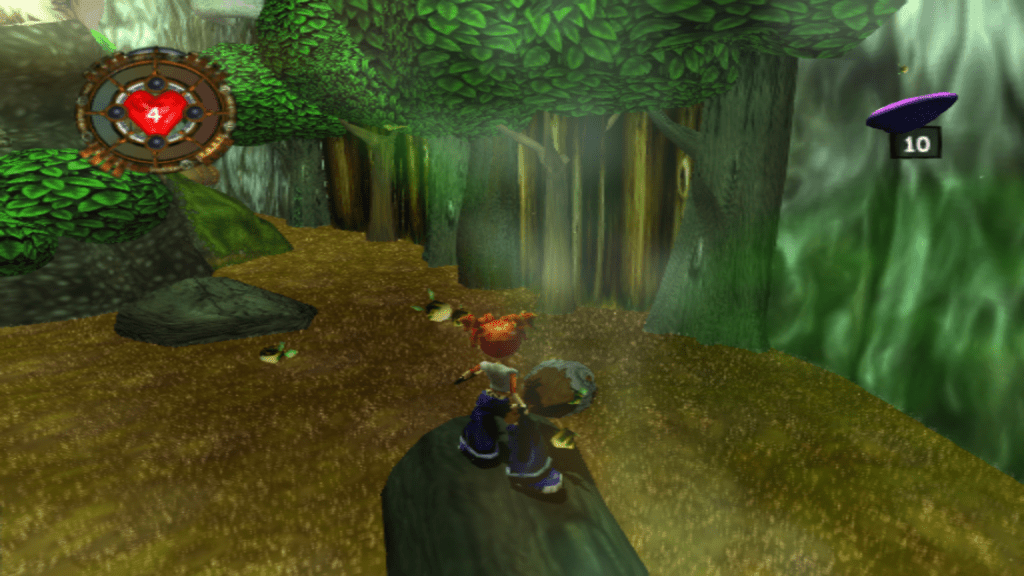
Replayability
With the game being heavily cut and condensed into a short, quick-fire experience containing only a handful of levels (and even some of these are repeated with a few changes each time) Malice is a very short game, coming in at around five hours. This actually makes the game exceptionally replayable since you can’t backtrack to old levels to grab any missed collectibles, meaning completionists will need to restart should they desire a perfect run. It’s fun and relatively simple to earn a perfect save file, though sadly there aren’t any rewards for doing so.

Conclusion
Being a game pieced together from a much more ambitious, unfinished project means that Malice is far from perfect, however it does contain components that are handled with perfection. There’s simple, precise, addictive platforming going on and presentation that’s positively generation-crossing, with sound design that does a decent enough job for a component slapped together at the last minute. These parts certainly show what Argonaut can do.
Not all components are handled with such finesse though. The writing doesn’t really go above and beyond the planned goal of finding the eight logic keys while Malice grows her arsenal of weapons, gadgets and spells before the final confrontation with Dog God, then that’s it, job done, roll credits. The characters are a mixed bag of ideas too, with the Metal Guardian granting us some witty banter and the ominous Dog God being suitably imposing, like a giant, scary Anubis. Malice, however, doesn’t actually develop much.
Though an edgy teen with attitude was a common trope around the 90s, Malice never really evolves beyond her image of a confident valley girl with a ‘no entry’ sign on her chest and comically oversized sneakers. As a new goddess, she has no backstory to uncover and so she can come across as shallow and immature. For this reason, the game would make for a superb entry point in a much grander saga which sees Malice grow, both in terms of strength and emotion, but obviously this was never meant to be.
As a standalone game though, it’s a very short experience that doesn’t give us a whole lot to discuss, but that isn’t necessarily a bad thing. What it means is what we do have is polished nicely while components that don’t work so well have simply been cut entirely. Sure, there’s not much we’re left with but we are compensated for that with a very low price tag which is a fair trade-off. As far as simple 3D platformers go, it does its job quite well. I’d say it’s definitely worth a look.
Joys
- Beautiful environments
- Simple, charming gameplay
- Very low price
Cons
- Very short at around 5 hours
- A completely different game from the ‘No Doubt’ version we hoped for
- Not much story or character development
